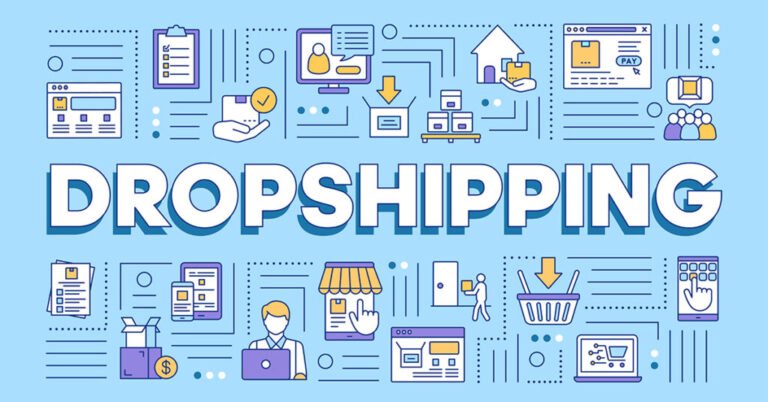Empowering Independence Through Online Freelancing
Freelancing has transformed my career, allowing me to work independently and thrive in a digital economy. Through platforms like Upwork, Fiverr, and Freelancer, I’ve leveraged my skills to serve clients globally, enabling me to pursue personal and professional growth. Here, I share valuable insights and tips gleaned from my experience in freelancing, aimed at helping others navigate and succeed in this dynamic field.
My Freelancing Journey: From Corporate to Independence
Transitioning from traditional employment to freelancing has been liberating. By offering my skills directly to clients through online platforms, I’ve gained flexibility, autonomy, and the ability to explore diverse opportunities. This shift has empowered me to manage my time, set my rates, and expand my capabilities beyond what traditional employment could offer.
Harnessing Online Platforms for Success
1. Diverse Opportunities: Online freelancing platforms offer a vast array of projects spanning various industries and skill sets. This diversity allows freelancers to explore different types of work and find projects that align with their expertise and interests. Key points to consider include:
- Access to Global Clients: These platforms connect freelancers with clients worldwide, expanding the potential client base beyond local boundaries.
- Specialization: Freelancers can specialize in niche areas such as graphic design, content creation, programming, digital marketing, and more, catering to specific client needs.
- Flexibility: Freelancers have the flexibility to choose projects that match their skills, schedule, and career goals, providing autonomy in their work life.
2. Building Credibility: Establishing credibility on online platforms is crucial for attracting clients and securing ongoing projects. Key strategies include:
- Optimizing Profile: Crafting a well-rounded profile that highlights skills, experience, and previous work samples effectively communicates expertise to potential clients.
- Compelling Proposals: Tailoring proposals to showcase understanding of client needs and how your skills can meet those needs increases the likelihood of winning projects.
- Delivering Quality Work: Consistently delivering high-quality work and meeting deadlines builds trust and encourages positive client reviews.
- Collecting Reviews and Testimonials: Positive feedback from clients serves as social proof of your capabilities and reliability, enhancing credibility and attracting new clients.
3. Scaling Your Freelance Business: As freelancers gain experience and build a strong reputation on online platforms, they can take steps to scale their business effectively:
- Increasing Rates: With a proven track record and positive reviews, freelancers can justify raising their rates to reflect their expertise and the value they provide to clients.
- Attracting Higher-Paying Clients: A strong portfolio and positive reputation attract clients willing to pay premium rates for quality work, enabling freelancers to focus on higher-value projects.
- Efficiency and Productivity: Adopting tools and workflows that streamline processes and enhance productivity allows freelancers to handle more projects without compromising on quality.
- Diversifying Income Streams: Beyond platform work, freelancers can explore additional income streams such as creating digital products, offering consulting services, or teaching courses related to their expertise.

Practical Tips for Freelancing Success
1. Finding Your Niche: Specializing in a niche area enhances marketability and client appeal. I’ve focused on refining my skills in specific industries, which has led to more fulfilling projects and increased client satisfaction.
2. Client Relationship Management: Clear communication, professionalism, and meeting deadlines are paramount. I’ve honed my ability to foster positive client relationships, which is crucial for repeat business and referrals.
3. Time Management: Balancing multiple projects requires effective time management. I’ve implemented strategies for prioritizing tasks, setting realistic deadlines, and maintaining productivity without compromising quality.

Overcoming Challenges
1. Financial Stability: Freelancing often entails irregular income streams, making financial stability a significant concern. To address this challenge, freelancers employ several strategies:
- Prudent Financial Management: This involves budgeting effectively to cover expenses during lean periods. Setting aside a portion of earnings during prosperous times can create a buffer against financial uncertainties.
- Negotiating Fair Compensation: Understanding the market value of your skills and negotiating fair rates with clients is crucial. This not only ensures you’re adequately compensated but also contributes to long-term financial stability.
- Diversifying Income Sources: Some freelancers explore multiple revenue streams within their expertise. This could include offering different services, creating passive income through digital products, or even investing in related ventures.
2. Avoiding Burnout: Freelancers often face the risk of burnout due to the demanding nature of client work and the absence of structured working hours. Strategies to mitigate burnout include:
- Setting Boundaries: Clearly defining work hours and client communication policies helps in managing workload and preventing work from encroaching into personal time.
- Prioritizing Self-Care: This involves regular breaks, adequate sleep, exercise, and maintaining hobbies and interests outside of work. These activities recharge creativity and prevent exhaustion.
- Time Management Techniques: Implementing productivity tools and techniques like the Pomodoro Technique or time-blocking can improve efficiency and prevent overexertion.
3. Legal and Administrative Considerations: Navigating legal and administrative aspects is essential for freelancers to protect their interests and ensure compliance:
- Contractual Clarity: Using well-drafted contracts that outline project scope, deliverables, timelines, and payment terms minimizes misunderstandings and disputes.
- Understanding Tax Obligations: Freelancers are responsible for managing their taxes, including income tax, self-employment tax (if applicable), and possibly sales tax depending on location and services provided.
- Professional Advice: Consulting with a tax advisor or accountant can provide guidance on structuring finances, maximizing deductions, and complying with tax regulations.
- Continuous Learning: Staying updated on legal regulations and industry standards ensures freelancers operate within legal boundaries and adapt to changes that may affect their business.
Conclusion: Sharing Knowledge and Empowering Others
Freelancing has not only provided financial independence but also the opportunity to pursue meaningful work aligned with my passions. By sharing my journey and insights, I aim to empower others to embark on their own freelancing careers confidently. Whether you’re considering freelancing or looking to enhance your current practice, leveraging online platforms and implementing these strategies can pave the way to a fulfilling and successful freelance journey.
Join me in embracing the possibilities of freelancing, where skills, determination, and innovation converge to create a thriving career path in today’s digital landscape.








